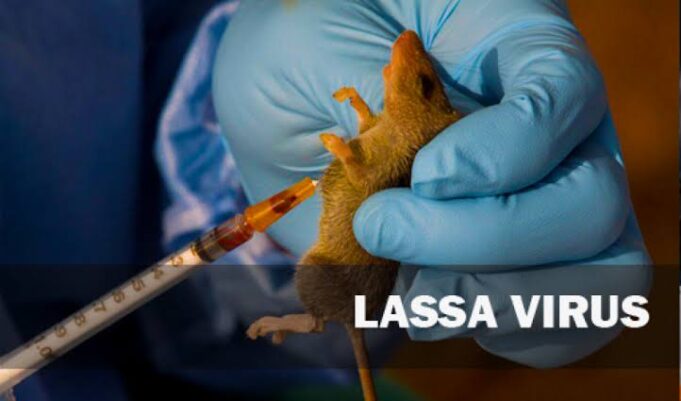The Nigeria Centre for Disease Control (NCDC) registered 40 Lassa fever-related deaths in January, adding that four health workers were also infected following the latest outbreak of Lassa fever in the country.
The NCDC, via its verified website, made this known on Sunday, saying that it is currently distributing medical response commodities to states and treatment centres.
Lassa fever is a viral haemorrhagic fever transmitted by rats. It has been known since the 1950s, but the virus was not identified until 1969, when two missionary nurses died from it in the town of Lassa in Nigeria.
According to the agency, for January, the 40 deaths and 981 cases reported in January 2022 were across 43 local government areas in 14 states.
The public health agency said “Cumulatively from Week 1 to Week 4, 2022, 49 deaths have been reported with a case fatality rate of 19.0 per cent.
“In total, for 2022, 14 states have recorded at least one confirmed case across 43 local government areas. Of all confirmed cases, 82% are from the following states as follows – Ondo (30%), Edo (27%) and Bauchi (25%).
“The predominant age-group affected is 21-30 years.
“The number of suspected cases has increased compared to that reported for the same period in 2021”
The centre also noted that, “four health workers have been infected so far, 233 cases undergoing treatment, 617 cases undergoing contact tracing while 968 have been listed for follow up.”
The agency added that the states with the suspected number of cases were; Edo, Ondo, Bauchi, Benue, Oyo, Taraba, Ebonyi, Kogi, Kaduna, Katsina, Ebonyi, Plateau, Cross River, Borno, Anambra, Bayelsa, Jigawa, Kebbi, Ogun, Kwara, Lagos, Delta, Gombe, FCT, Nasarawa, Rivers and Enugu.
The NCDC said that Lassa fever is caused by a single stranded RNA virus and is a disseminated systemic primary viral infection.
“The main feature of fatal illness is impaired or delayed cellular immunity leading to fulminant viraemia.
“This is why health workers should maintain a high index of suspicion for Lassa fever, be vigilant and look out for symptoms of Lassa fever. Not all fevers are malaria,” it added.
The agency also reported its activation of emergency response over the virus across the country, saying activation became necessary given the increase in the number of confirmed cases across the nation.
Since, the last outbreak of the virus in 2016, the health agency noted that there had been an increase in the number of cases in the country.
- Army detains 2 soldiers over theft of cables in Dangote Refinery - April 17, 2024
- EFCC to Nigerians: Obstruct our operations, risk 5 years in jail - April 17, 2024
- Alleged N80.2bn fraud: EFCC sets to arraign Yahaya Bello April 18 - April 17, 2024










